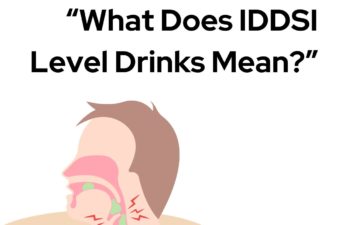Dysphagia, or difficulty swallowing, is a condition that can significantly affect a person’s quality of life. It can be caused by a range of underlying conditions, including neurological disorders, cancers of the head and neck, and age-related muscle weakness[^1^]. Towards the end of life, the incidence of dysphagia often increases, presenting a unique set of challenges and requiring a compassionate, individualised approach to care.

Understanding Dysphagia in End-of-Life Care
Dysphagia in end-of-life care is often complex and multifactorial. For individuals with progressive neurological conditions such as Parkinson’s disease or motor neurone disease, dysphagia may become increasingly severe as the disease progresses[^2^]. Meanwhile, those with terminal cancer may develop dysphagia due to tumours obstructing the oesophagus or nerve damage caused by the disease or its treatment[^3^].
Managing dysphagia at the end of life often revolves around a careful balance: maintaining the individual’s quality of life, preserving their dignity, and managing their symptoms effectively. Unfortunately, this isn’t always an easy task, as the difficulty swallowing can result in malnutrition, dehydration, and aspiration pneumonia[^4^].
Approaches to Managing Dysphagia at the End of Life
When it comes to dysphagia management at the end of life, a palliative care approach is usually adopted. This means focusing on relieving symptoms and enhancing the person’s comfort rather than trying to cure the underlying cause of the dysphagia.
- Texture Modified Diets and Thickened Liquids: Modifying the texture of foods and thickening liquids can make swallowing safer and easier. A speech and language therapist or a dietitian can provide advice on the most appropriate modifications[^5^].
- Medication Review: Some medicines can exacerbate dysphagia by causing dry mouth or altering muscle control. A healthcare professional may review the person’s medication to see if any changes can be made.
- Alternative Feeding Methods: If swallowing becomes too dangerous or difficult, alternative feeding methods such as tube feeding may be considered. However, the benefits and drawbacks of these approaches must be carefully discussed with the individual and their family, taking into account their quality of life and personal wishes[^6^].
- Hydration and Nutrition: In cases where oral intake is significantly impaired, careful monitoring of hydration and nutritional status is crucial. In some cases, intravenous fluids or parenteral nutrition may be considered.
- Palliative Therapies: Therapies such as gentle oral stimulation, positioning techniques, and strategies to enhance swallowing safety can be beneficial.

The Role of Innovation: Dysphagia Drinks Machine
In response to the significant challenges presented by dysphagia, innovative solutions have been developed. One such solution is the Dysphagia Drinks Machine from Refreshment Systems. This machine delivers a range of beverages at the precise consistency levels recommended by the International Dysphagia Diet Standardisation Initiative (IDDSI), making it easier and safer for those with dysphagia to consume liquids.
Final Thoughts
Dysphagia at the end of life presents a unique set of challenges. By adopting a compassionate, person-centred approach, healthcare professionals can help enhance the individual’s quality of life, providing comfort, preserving dignity, and mitigating the risks associated with this condition.
[^1^]: American Speech-Language-Hearing Association, Dysphagia in Adults
[^2^]: National Institute on Aging, Parkinson’s Disease
[^3^]: National Cancer Institute, Dysphagia
[^4^]: National Institute on Deafness and Other Communication Disorders, Dysphagia
[^5^]: National Health Service, Swallowing problems
[^6^]: Mayo Clinic, Tube feeding: How to choose the right feeding tube



